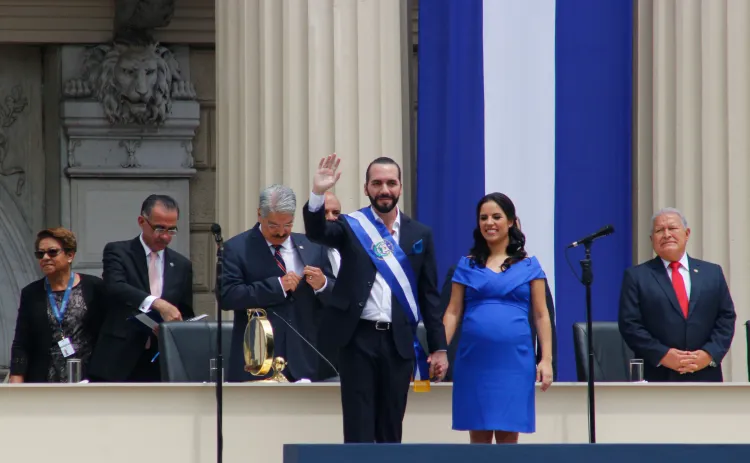Has El Salvador's National Assembly Just Extended the Presidential Term to Six Years?

Synopsis
Key Takeaways
- El Salvador's National Assembly has amended the constitution.
- Presidential term increased from five to six years.
- Term limits for the president have been abolished.
- Changes align presidential elections with legislative polls.
- Concerns over civil liberties have been raised.
San Salvador, August 1 (NationPress) On Thursday, El Salvador's National Assembly sanctioned revisions to the nation's constitution, permitting President Nayib Bukele, currently in his second term, to seek re-election indefinitely. Bukele's political party, which dominates the legislature, voted to abolish presidential term limits and increase the presidential term from five to six years, as stated in a release from the National Assembly on X.
The constitutional amendments affecting five articles were endorsed by 57 lawmakers, while three opposed the changes, according to the National Assembly's announcement. Ana Figueroa, a lawmaker from Nuevas Ideas who proposed the amendment, emphasized that these changes will align presidential elections with legislative and municipal elections.
Figueroa pointed out that legislators and local officials, including mayors, currently do not face term limits. Although President Bukele's current term concludes in 2029, Figueroa suggested that his term should finish in 2027 to align with legislative elections, allowing him to seek a six-year term thereafter.
Bukele first assumed office in 2019 and successfully won a second term in 2024. Legal experts previously indicated that El Salvador's Constitution prohibited consecutive presidential terms. However, after Bukele's legislative allies appointed new judges to the Supreme Court, the court reinterpreted the constitution, clearing the way for Bukele to run for president again.
During his presidency, the 44-year-old leader has centralized authority, guiding his Nuevas Ideas party to a supermajority in the legislature and implementing aggressive measures against gangs through mass arrests. Under Bukele's government, gang-related killings and extortion have notably decreased. Nonetheless, human rights advocates in El Salvador have raised concerns over the erosion of civil liberties.
Earlier in June, Bukele declared he would prefer to be labeled a dictator than to allow criminals to operate freely. He also referred to himself as US President Donald Trump's closest ally in Latin America, agreeing to imprison immigrants expelled from the United States under Trump's deportation strategy in exchange for the return of MS-13 gang members who were in US custody.









